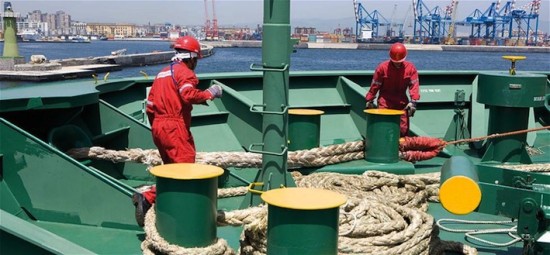Foster Obi
The call for capacity building as a panacea to taking the maritime industry in Nigeria to the next level was again brought to the front burner as SHIPS & PORTS DAILY encountered an expatriate while moving around the Lagos port within the week. The expatriate who said he came to Nigeria on the invitation of a haulage firm only gave his name as SFIX for security reasons.
He said that although he does not have the right to tell Nigeria what to do, the government will get it right in this industry if it takes capacity building seriously.
‘Check the Western countries and you understand why capacity is emphasised in any sector,” he said adding, “Since I came here, I noticed two things. The first is that capacity building in this sector is small. I read the papers I see that controlling authorities spend money on frivolities instead of training the people they work with that will change things.
“Secondly I find out that government appointments are mostly people that do not have sufficient knowledge to run the sector. I suggest that your government should do a rethink on these things and they will get it right. You change the people and you change the system,” he declared.
Also Tony Anakabe, Managing Director , GoldLink Investment; a maritime practitioner who overheard the conversation between SHIPS & PORTS DAILY and the foreigner said Nigeria does not need an expatriate advise for it to understand why it is necessary to train people.
“I have attended seminars in the sector and I have heard so many professionals talk about capacity building but where has it taken us to. For me it is not about talking but do the authorities listen. The problem we have is not lack of men but political will and this will continue until the government begins to take professional advice seriously,” he noted.
Recently President of Association of Marine Engineers and Surveyors (AMES), Charles Uwadia called for a holistic review of the maritime sector human capacity development.
He said the failure of the sector is due to lack of indepth technical input in maritime policies and their implementation in line with international best practice.
Also Former Alternate Permanent representative to the International Maritime Organization (IMO), Engr. Olu Akinsoji said individuals with specialised knowledge especially in human capacity development are required to ensure policy formulation and implementation to move the sector forward.
He said most of the challenges faced in the sector are due to the deficit of human capacity development, which according to him must be looked into before establishing a new national carrier.
“The consciousness for specialized knowledge that is required in the industry has dwindled and as such we are faced with mirages of challenges and problems that we have unconsciously infringe on ourselves,” he said.
The Chairman of Port Consultative Council (PCC), Chief Kunle Folarin, said that building human capacity was critical in addressing the problems facing the development of Nigeria’s maritime sector.
Folarin said that investors would be encouraged to establish businesses in the various sub-sectors of the maritime industry with the available manpower.
He said that thousands of jobs would be created in addition to the transfer of skills.
“Let us look at issue of capacity building, so that an investor will come here and say, `I have local skilled manpower to work in my shipyard if I install a shipyard here,” he added.
Copyright Ships & Ports Ltd. Permission to use quotations from this article is granted subject to appropriate credit given to www.shipsandports.com.ng as the source.

